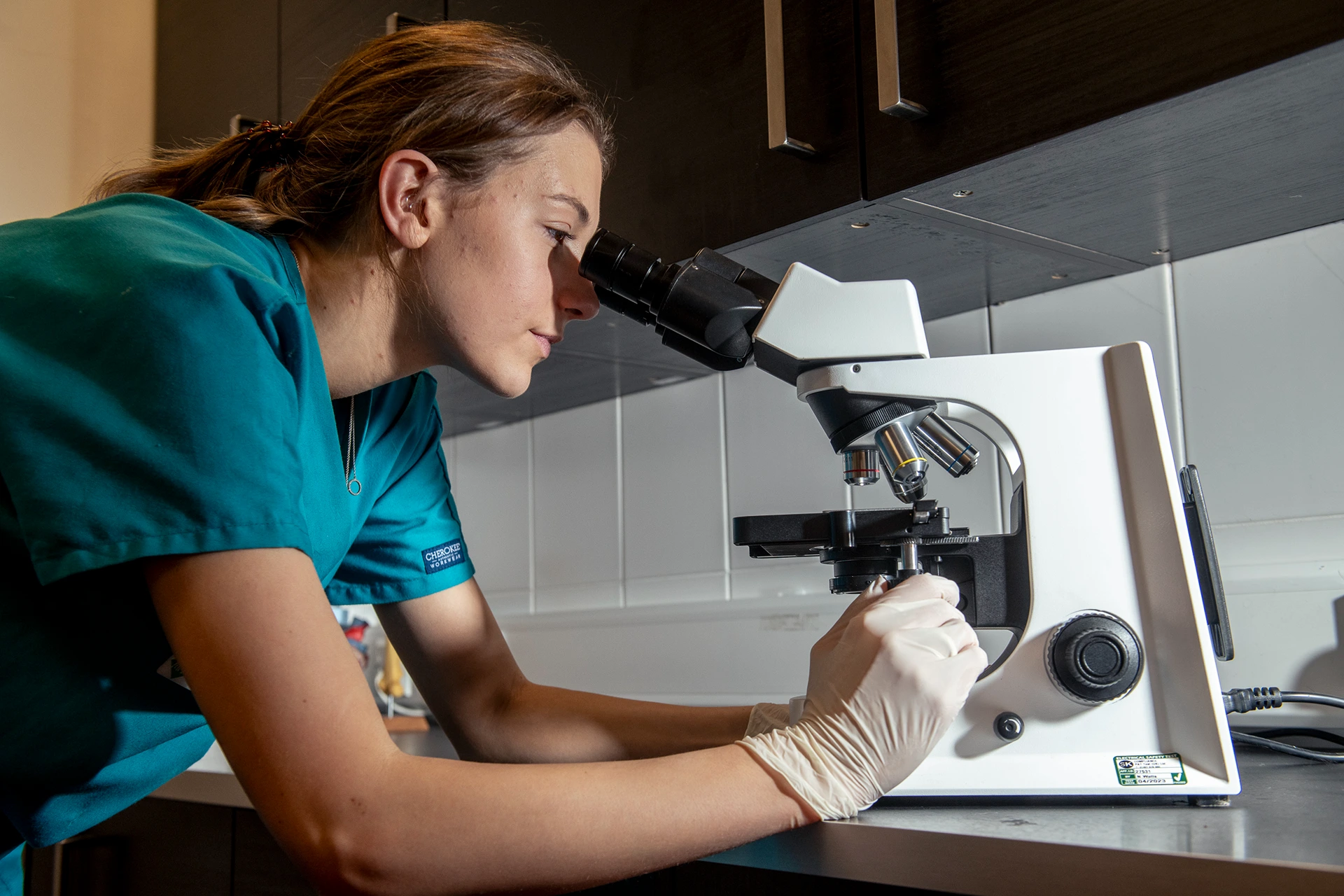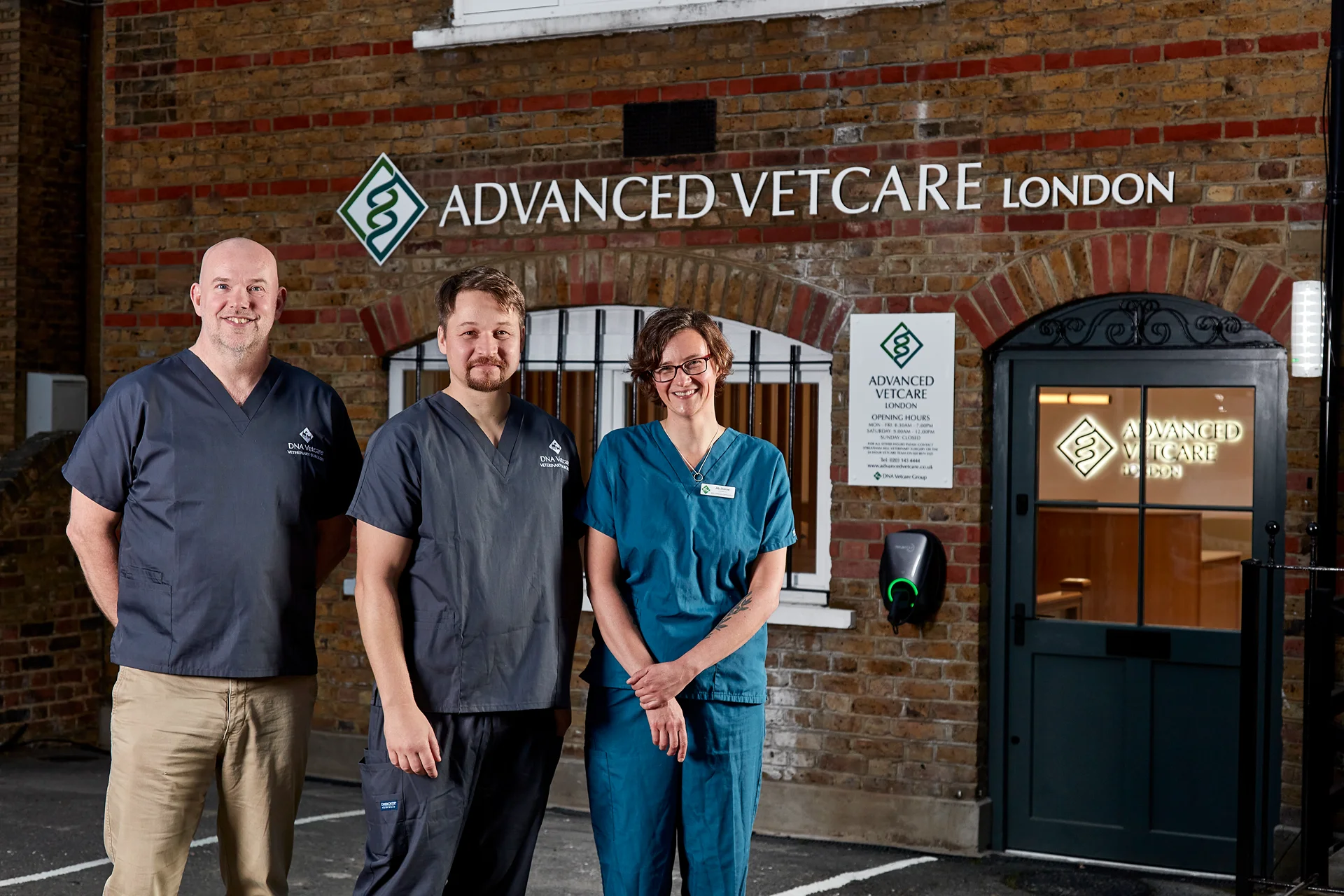Stem cell therapy


Safe, targeted care from our expert team
We will soon be offering stem cell therapy for pets as part of our commitment to progressive, evidence-based veterinary medicine. This cutting-edge treatment can help relieve pain, improve mobility and reduce inflammation in dogs and cats suffering from conditions like arthritis or joint dysplasia.
Safe, targeted care from our expert team
We will soon be offering stem cell therapy for pets as part of our commitment to progressive, evidence-based veterinary medicine. This cutting-edge treatment can help relieve pain, improve mobility and reduce inflammation in dogs and cats suffering from conditions like arthritis or joint dysplasia.

What is stem cell therapy for pets?
Stem cell therapy is a regenerative treatment that harnesses the ability of stem cells to repair and rebuild damaged tissues and joints. Typically stem cell therapy is used to treat conditions such as musculoskeletal injuries or conditions like osteoarthritis where an animal has damaged or degenerating joints or in animals experiencing long-term or chronic pain.
The treatment is minimally invasive, can be performed under a general anaesthetic or sedation, and is often used alongside other therapies such as physiotherapy or a course of joint supplements for a comprehensive approach to mobility management.
What conditions can be treated with stem cell therapy?
Stem cell therapy is most effective in orthopaedic and inflammatory conditions. It can be used to treat:
Elbow dysplasia
Elbow dysplasia is a developmental joint condition that causes pain, stiffness, and reduced mobility in dogs.
Stem cell injections help reduce inflammation and promote healing in the elbow joint, potentially improving function and slowing progression.
Hip dysplasia
In both cats and dogs, hip dysplasia leads to joint instability and long-term arthritic change.
Stem cell therapy can provide pain relief, reduce inflammation, and enhance quality of life - especially in pets not suitable for surgery or where surgery has already been performed.
Osteochondritis
Osteochondritis is a developmental orthopaedic disorder in young dogs, often affecting the shoulder, elbow or knee.
Stem cells may support healing after surgical removal of damaged cartilage, or as part of a conservative management plan in select cases.
Osteoarthritis
Osteoarthritis is one of the most common reasons we use stem cell therapy.
By targeting inflammation and promoting regeneration of joint tissues, stem cells offer a natural, long-acting solution for pain management and mobility restoration in ageing or injured pets.
Frequently asked questions
Because the stem cells are autologous (from your pet), the risk of rejection or reaction is very low. Many pets start improving within a few weeks, with mobility and comfort continuing to increase over the following months. Your specialist will recommend a personalised treatment and follow-up plan based on your pet’s condition.
We collect stem cells from your pet’s fat tissue under a short anaesthetic. These cells are then processed and reintroduced into the affected area. The regenerative cells help reduce inflammation, promote healing, and support long-term tissue repair, with minimal risk since they come from your pet’s own body.
Stem cell therapy is commonly used to treat osteoarthritis, tendon and ligament injuries, joint inflammation, and certain degenerative conditions. It works by using your pet’s own regenerative cells to reduce pain, repair damaged tissue, and improve mobility.
Refer a case or learn more
Refer a case
Fill out our referral form and a member of our team will be in touch
Refer a case



.webp)

